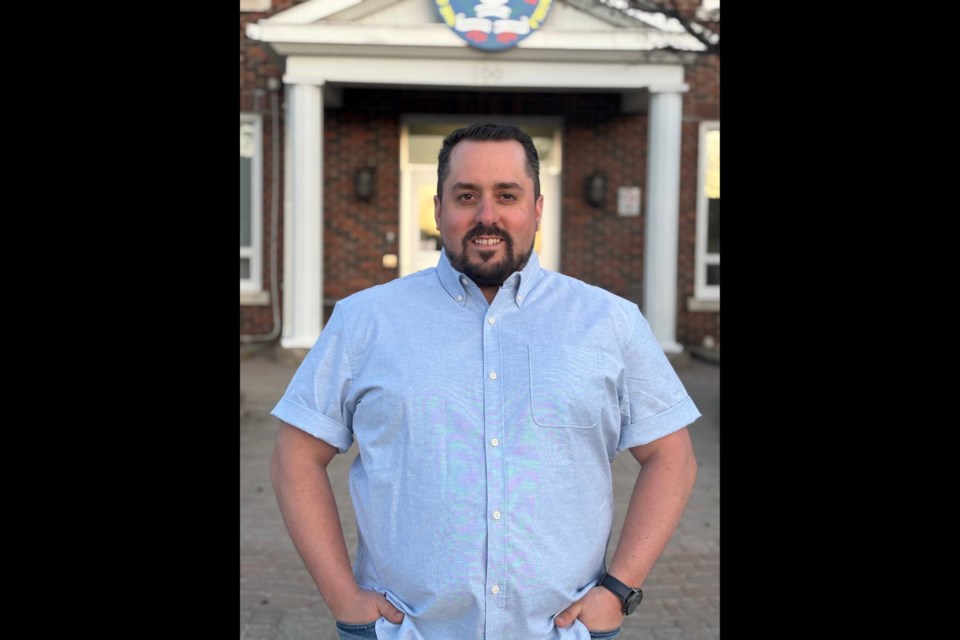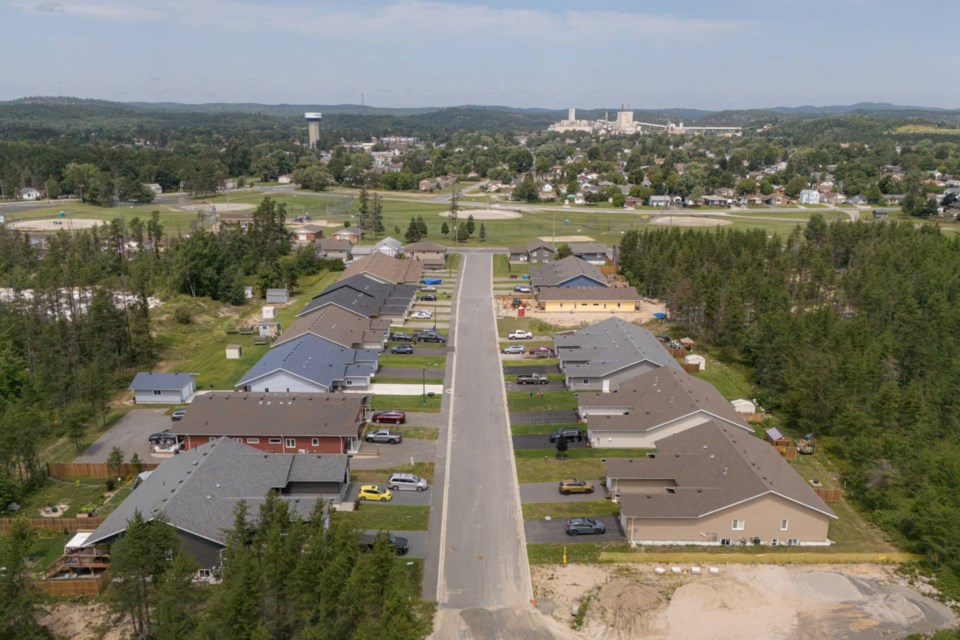As Ontario Minister of Northern Economic Development George Pirie wrapped up a funding announcement for sports infrastructure in Sudbury, Espanola’s CAO and top official stood off to the side of the fray, carrying a noticeable sense of optimism.
It's that optimism that’s been propelling Joseph Burke forward, mirroring the same full-steam-ahead attitude of his community, despite some bumps in the road to prosperity.
“We haven’t skipped a beat,” Burke told Northern Ontario Business when asked exactly what keeps him positive when discussing the community’s future.
After all, it hasn’t been the cheeriest of times for the northeastern Ontario town, 70 kilometres west of Sudbury.
The pulp and paper mill owned by Domtar, the largest employer in town, shut its doors earlier in 2024. For generations, the mill defined Espanola’s economy, and more so its identity.
But since that announcement the town has pivoted — fast, Burke said — and is now laying the groundwork for what he hopes will be a more resilient, economically diverse future.
At the centre of that vision: more than 100 new homes slated for construction over the next three years.
“The demand is driving it, first and foremost,” Burke said. “As a municipality, what we’ve tried to do is begin creating the conditions to allow for this to happen. We have a lot of capacity and are well-situated to provide a place for a lot of different demographics and folks who are all at different stages of their lives.”
In 2023, council approved a new housing action plan in 2023, part of the town’s successful application to the federal Housing Accelerator Fund. Espanola secured more than $2 million through the program to support five local housing initiatives — including upgrades to roads, water and sewer infrastructure that will open the door to new builds.
“Some of the units are already being built on infill lots, which is ideal,” Burke said. “But we also have expansion areas to the south of town that are suitable for subdivisions or for constructing multi-residential.”
The majority of new units will be “missing middle” housing, Burke said — duplexes, row homes, and small apartment buildings — designed for a mix of residents, from workers to retirees.
“We had a record-breaking year in 2024 with over 30 units,” he said. “Twenty twenty-five is shaping up to be the same as we continue on pace for our goal of 100 new units from 2025 to 2028.”

That sense of movement is what Burke calls “momentum.” It’s a word he uses often in conversation, and not just in reference to housing. He shifts between discussions around local economies, regional plan-building and service delivery, but doesn’t swerve from his belief that prosperous days are ahead.
“From a policy perspective, it relates directly to our land-use planning approach. We’ve simplified zoning, allowed for a greater variety of building formats, and dedicated time to working closely with developers,” he said.
Still, the town’s future can’t rely on growth alone. There’s people that need jobs, stability, and hope.
As part of a regional effort to recover from the loss of the forestry sector, Espanola is now developing a new economic diversification strategy with support from FedNor and NOHFC. The goal is to bring stakeholders together across municipalities and First Nations to reshape the next chapter.
“We’re still, in a sense, grieving that [Domtar] loss,” Burke said. “And we’re just starting to understand what that new future can look like. It may still include some forestry, but there’s been a decisive shift. The strategy itself is not just about economic data — it’s about acknowledging where we are, processing it as a community, and deciding where we want to go.”
Burke said small businesses and regional partnerships will play a key role in the town’s future — including the neighbouring townships of Sables-Spanish Rivers, Baldwin, Nairn and Hyman, as well as Sagamok Anishnawbek and Whitefish River First Nation.
“We need a good cross-section of our community at the table,” Burke said. “Ideally, you have the person who’s been with the municipality for 20 years and the one who’s just started. That’s how you make well-rounded decisions.”
As for what industries might take root next, Burke said the town has already fielded interest from sectors ranging from housing construction and light manufacturing to biomass and tourism.
“I think there’s great potential for biomass-type industry in Espanola and the LaCloche region,” he said. “There are also tech industries, and companies tied to housing builds — everything from concrete-based to wood-based manufacturing.”
But one major question remains: what becomes of the sprawling former mill site? The land is now set to be acquired by BMI Group, a company Burke said has “some very promising ideas and ambitions” for the property.
“Ten years from now, I’m hoping to see at least a few different businesses operating on that property,” he said. “Just like with housing, we want to see momentum among industrial players.”
Asked what makes Espanola capable of sustaining this momentum, Burke pointed to both its geography and infrastructure.
“You still get that small-town feel, but you’re close to Sudbury, close to resource development, and close to everything people come north to enjoy — lakes, trails, cottages,” he said. “We have the amenities, and we have the quality of life.”
Despite his enthusiasm, Burke doesn’t pretend the work ahead will be easy. Rising costs, infrastructure renewal, and talent retention remain major concerns for the CAO. The town, he said, must continue to educate the public on how municipal finances work, and keep staff motivated amid growing public expectations.
“You’re always being asked to offer more services for less cost,” Burke said. “Finding people who are willing to do the work — often for less money than they’d make elsewhere — is one of the biggest challenges we face.”
Still, for now, the energy — and the optimism — is real.
“It’s not all sunshine and lollipops,” Burke said. “But it’s still overwhelmingly a role that provides a great opportunity to make a real difference in the everyday lives of your neighbours. And I just cherish that.”




